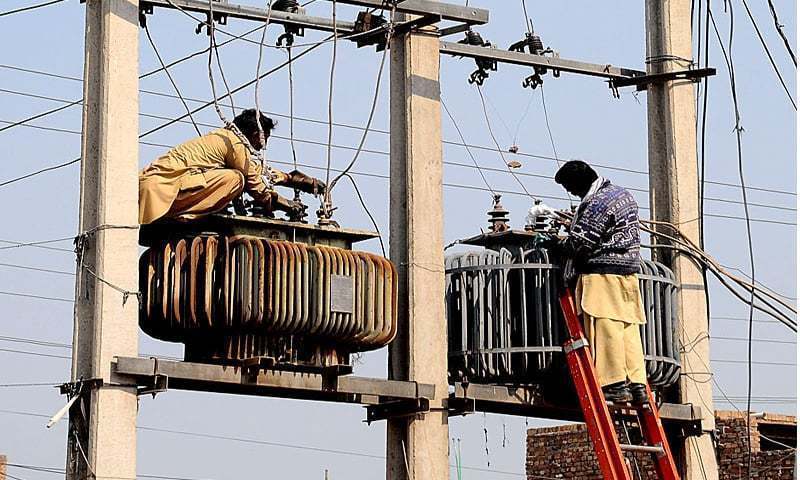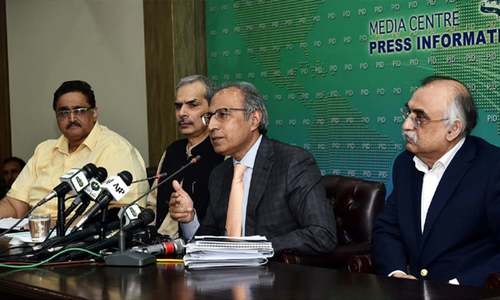ISLAMABAD: Challenging ‘intrusion’ into its affairs by the National Accountability Bureau (NAB), the National Electric Power Regulatory Authority (Nepra) has conceded failure of its policy to charge higher system losses to consumers.
In its flagship State of the Industry Report 2018, Nepra has also questioned the sustainability and affordability of the power sector with over Rs1.2 trillion circular debt and distribution system gone into failure.
“Almost all the projects on which Nepra had made determinations in the past have been questioned by NAB, and the way the investigations are being conducted, it has completely stifled the morale of Nepra professionals,” complained the power regulator.
Nepra also lamented that this matter in essence had come to its regulatory jurisdiction and “the boundaries beyond which NAB may not intervene”. It emphasised that holistic approach was urgently required so that confidence of the power sector in general and that of the regulator in particular was not unduly hurt.
It said with circular debt above Rs1 trillion by the end of December 2018, the power sector posed “a major challenge for the government” and urgent measures were needed for a “revival of a collapsed sector”. After addition of more than 10,000 megawatts of generation capacity over the past five years, the transmission sector only showed improvement to some extent, whereas the distribution sector had totally gone into a failure.
Suggests privatisation of distribution companies to save power sector
The regulator also bemoaned that a reform process started in the early 1990s to bring efficiency in the power sector still suffered from “unreliable power supply due to transmission and distribution system constraints and other inefficiencies” despite addition of generation capacity and improvement in power supply position at different times.
“The electricity consumers are still getting expensive electricity due to external and internal factors,” the regulator said, adding that the government had major challenges at hand to revive a collapsing sector. Due to heavy dependence of power generation on imported fuels, the price of imported fuels was among the major external factors, directly impacting the cost of power generation.
With the rapid depletion of indigenous gas at subsidised price, the space for other options is limited. The internal factors also continue to add to the inefficiencies, leading to expensive energy mix. The federal government, being the owner of power generation companies (Gencos) in the public sector, has not decided about the fate of inefficient Gencos while the constraints in transmission and distribution networks have forced the system operator to underutilise available generation capacities and curtailment of power supplied by conventional fuel and wind energy power plants.
On an overall basis, XW-Discos (ex-Wapda distribution companies) have failed to reduce their transmission and distribution losses and Nepra’s policy to allow higher losses in tariff have not yielded results.
It said the Discos reported actual losses of 18.72 per cent in 2013-14 whereas Nepra set a target of 13.29pc for Discos to bring efficiency in this area, while allowing them to invest as per their investment proposals to reduce transmission and distribution (T&D) losses. Consequently, Nepra allowed an increase of T&D losses to 15.72pc in financial year 2014-15 and further to 16.28pc in FY2015-16. It said the same target losses were maintained for FY2016-17 whereas the losses were revised to 16.15pc for FY2017-18.
“However, Discos could not bring sustained improvements in their actual loss levels. The overall losses showed slight improvement in FY2015-16 and FY2016-17 but for FY2017-18, the Discos again reported their actual losses at almost the same levels as they were in FY2013-14. Even the better performing Discos were not able to reduce their losses over this period,” the regulator said.
As a result, the power sector circular debt is touching Rs1.2 trillion mark at present, with continued addition of around Rs200bn to Rs250bn annually. Fundamental issues of governance, capacity and induction of technological improvements in operations should be addressed forthwith, the regulator said, calling for their due independence and an end to centralised structure.
It recommended structural changes such as the privatisation of Discos to save the sector.
The regulator said the amendments had been made to Nepra Act in April 2018 without having due deliberations with the result that the requirement to maintain a uniform tariff throughout the country and certain new concepts in the Act were inconsistent.
The regulator also challenged the government’s “regressive policy” of loadshedding in high-loss areas, because it would not result in long-term viability of the sector. “It is not enough to just focus only on carrying out loadshedding in areas having high losses”, rather other measures to effectively cut losses should be given more importance for implementation.
Nepra demanded specific and higher renewable energy targets but called upon the government to “revisit earlier decisions to import power from Central Asian states, as it is not expected to replace any other expensive energy generation, whereas it would add to the capacity payment requirements” and would also burden the National Transmission and Dispatch Company for timely development of transmission infrastructure.
Published in Dawn, September 21st, 2019














































